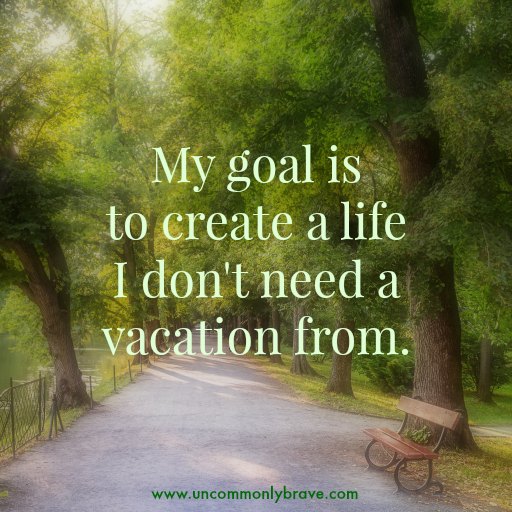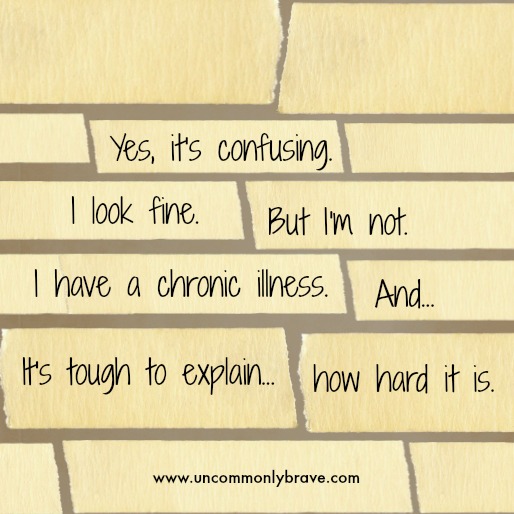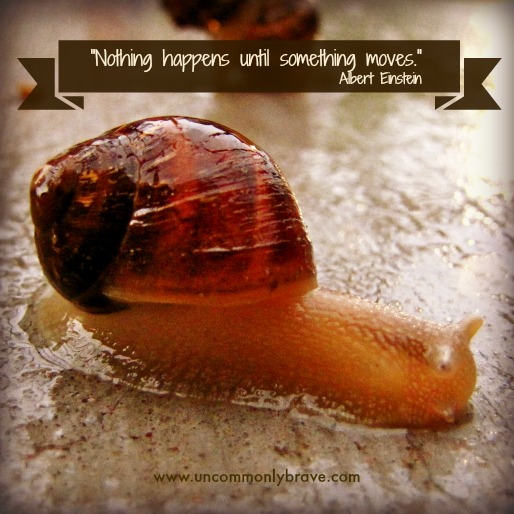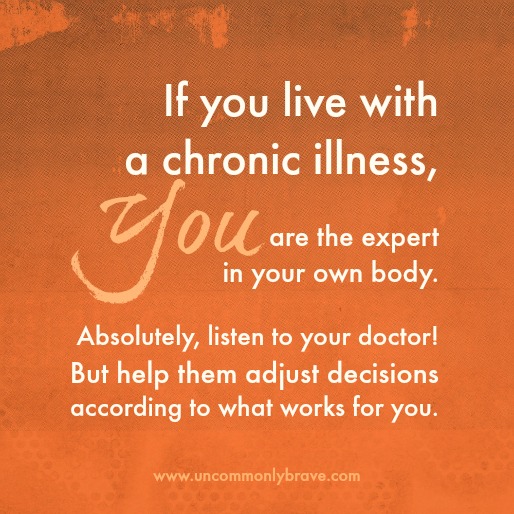
I’m still learning about living life with a chronic illness. I’ve been sick all my life, but it’s not like a person can master how to live gracefully and courageously when they’re fighting with a body that doesn’t seem to want to take orders. I don’t have it all figured out, but every day I work hard to become uncommonly brave: to live my life under my terms with a sophisticated peace that conveys I am the author of my own experience.
Want to create your own best chronic illness life? Where do you even start? Here are a few thoughts to get you going:
- Your nest. Think about your home, your bedroom or the place you spend the most time when you’re feeling ill or having a bad day. This is a great place to begin. What would help you feel more comfortable here? Do you need extra pillows, a special chair or a bedside reading nook to create a space that feels warm and inviting? Or do you need a desk where you can be productive for a few minutes at a time? Make plans to redesign your space to make it work for you and your unique needs and desires.
- Your free time. Think about what you tend to do with your free time. Maybe you already take long walks on the beach or in the woods. Maybe you love window shopping or crafting gifts for others. Whatever it is that fills you up, do more of this! When we’re sick, we tend to stop doing the very activities that might distract us from our illness and bring us internal strength. If you’ve stopped doing these things, start today. Even a few minutes of soul-filling activity is worth it! And if you need help, ask for it. Maybe you can’t walk through the woods, but you could use a nice drive to a park. Make it happen today.
- Your work time. Think about how you spend your hours contributing to the family income. If you don’t work outside the home, think about the activities you do inside the home. We all spend a lot of time at our workplace or working at home. Do what you can to bring life and joy to this situation! Pin up pictures of things you care about in a work locker or in your cubicle. Add color to your office or computer area. Find a few favorite restaurants that deliver. Block out time to have lunch with a friend. Start simple, but make this area and the time you spend in it something you look forward to. Sometimes even the simplest things can make a huge difference.
- Your life. Think big! Do the suggestions above seem too small? Then think bigger. Maybe you don’t need a few minor improvements to create a life you love. Maybe you need radical change. Of course, I’m not advocating you make reckless changes to your life (like quitting your job without another income or moving to a place you have no support system developed). But if you’re really feeling like your life has become unbearable, it might be time for a major adjustment. Maybe it’s time to gather a few friends, share your dreams and talk about how you might achieve your goals, despite your illness. It’s never to late to start again.
Life is just plain difficult when you’re living with a chronic illness, chronic pain or undiagnosed illness. But though your body might rebel, you still have the ability to affect positive change in your life. Why not start now?





